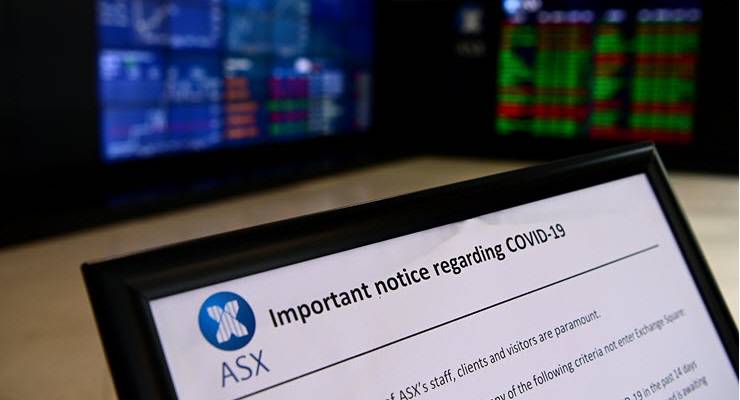
The bleeding obvious award of this week has to go to the corporate regulator for its report finding small investors playing the market during the recent crash were likely to have lost money.
No, really? There’s a turnup for the books.
That inexperienced investors would throw their money into a market that most professional investors were avoiding — what could possibly go wrong?
Well, “they were pretty crummy at it” was the conclusion of the investors’ bible The Australian Financial Review. Maybe they were reading the AFR headlines — in February one day they screamed, “buy the dip” and two days later, “don’t buy the dip”.
Admirable as it was for ASIC to move uncharacteristically quickly in putting out the “retail investors at risk in volatile market” report, it was characteristically short on explaining or solving the problem.
But then you can’t legislate against greed, goes the saying. Or ignorance. So ASIC can only do so much like highlighting the folly of trying to catch falling knives.
One thing different about this crash is that unlike 1987 there are fewer business media heavyweights promoting the promoters.
It’s hard to describe the heady days of the 1980s when the likes of Christopher Skase, Alan Bond, Robert Holmes a Court and a raft of long-forgotten crooks were hailed as buccaneers and subject to breathless coverage.
There’s still a bit of it around but it’s far more fragile as was proved last week when Andrew “Twiggy” Forrest quickly went from being seen as a philanthropist to China stooge.
We’ll have to wait a little for the current over-leveraged rich listers to topple, as some will inevitably do when they’ve finished giving self-serving interviews.
Thirty years later there are now unlimited news outlets and online sources for financial advice but the results are much the same.
One media-friendly fund manager I spoke with on radio in February told everyone to keep buying when the market hit a record and exactly the same message when it had crashed a few weeks later. The coronavirus crisis would be over soon, forgotten within three years, he claimed. His main fund recently announced it was closing.
The lack of trust in institutions like banks and leaders from business to politics has taken its toll.
The biggest change is that since 1987 superannuation has forced everyone into the stockmarket and anyone even close to retirement age is suddenly an expert investor. Just note the explosion in self-managed super funds.
They’re all chasing “yield” where once they wouldn’t know what it was, much less appreciate how elusive it is in a recession.
Don’t worry about the franking credit debate. Plenty of even blue chip shares won’t be paying any dividend at all.
Investors are so used to yield they don’t comprehend the idea anyone would put their money in the bank earning no interest just to be safe.
I joked at the outset of this crisis that investment properties would have a rent strike, shares would have a dividend strike while cash was still government guaranteed and at least they weren’t raiding the bank accounts as had happened to a friend in Beirut.
Not so funny now thanks to despicable Me Bank.
Back in 1929 old hands worried when the shoe shine boys gave them stock tips. During this crash a broker worried when his gym instructor told him he was buying shares as they were cheap — and this despite the fact his business was shuttered.
“You don’t think you might need the cash?” he suggested to no avail.








We have not yet seen the extent of the financial carnage this pandemic is causing. Yet all the commentary is sanguinely about a mere ‘downturn’ or a short recession. It will be long depression, the effects of which I may not see end in what is left of my life. But a review of the past 40 years shows that conventional economics has never been right about the next 5 years and it is not going to break its duck this time.
“There’s still a bit of it around but it’s far more fragile as was proved last week when Andrew “Twiggy” Forrest quickly went from being seen as a philanthropist to China stooge.” I don’t see Mr Forrest as being a ‘stooge’ rather, I see him as being an astute and hard-headed businessman who know that this whole business will blow over and one day we will be looking to rebuild markets and relationships. On the other hand it could also be argued that Andrew Hastie and Peter Dutton and James Paterson and Tim Wilson and the ASPI and the IPA are ‘stooges’ of the Trump Maladministration – and if they are not then why are they running our foreign and trade policy areas instead of Payne and Birmingham and Morrison?
The long game – was it not reported in Crikey recently (or was it elsewhere) that the reason Tasmania gets so many Chinese tourists is because it was the only state Xi Jin Ping visited during his visit to Canberra whenever it was? And why did Xi go to Tasmania? Because back in the 80s, Tassie Premier Doug Lowe linked Hobart as a sister city to some city in some province in China, the province of which Xi happened to be Governor at the time. Xi never forgot, and Tasmanian tourism benefited 40 years later.
The names of the Chinese city and province escapes me but the story is true.
“One media-friendly fund manager I spoke with on radio in February told everyone to keep buying when the market hit a record”
Listening to a fund manager should be on a par with listening to a real estate agent. They are naturally conflicted, they will always say “this is a good time to buy” as they clip your ticket.
I got out last August and won’t be going back in a hurry. I watched bereft as it went to 7200 or so, the crash was coming even without Covid-19, and was actually precipitated by an oil price shock. It is still almost certainly overpriced, with another correction likely. The only way current prices would be just OK would be if EVERYTHING goes right from here.
That ain’t gonna happen.